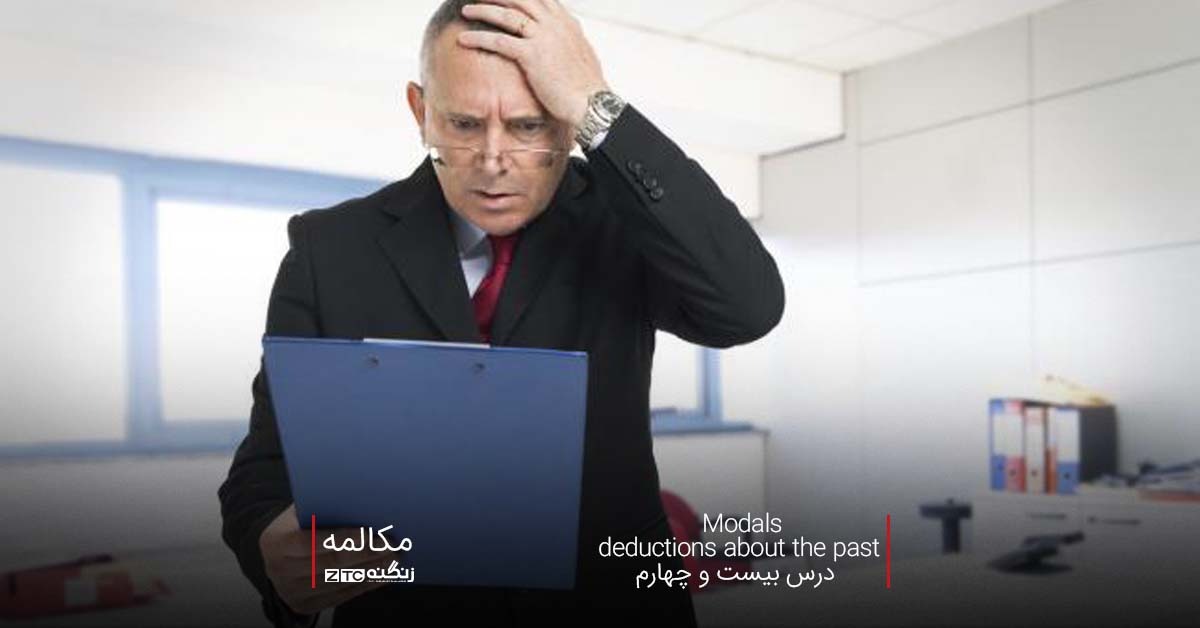حتی اگر تصمیم به ثبت نام ندارید...
با پر کردن این فرم یا با تماس با 02145328 صمیمانه و با تمام وجود در کنار شما خواهیم بود.

می دونید چجوری باید از افعال کمکی (modal verbs) استفاده کنید تا درباره ی مطمئن بودنت از وقایع گذشته صحبت کنید؟ به این مثال ها توجه کنید تا متوجه شوید افعال must، might، may، could، can’t و couldn’t برای صحبت درباره ی گذشته چگونه در جمله به کار برده می شوند.
| استفاده از افعال کمکی برای گذشته |
| must, might, may, could, can't and couldn't |
|
An earthquake? That must have been terrifying! |
|
We don't know for sure that Alex broke the coffee table. It might have been the dog. |
|
How did she fail that exam? She can't have studied very much. |
از افعال کمکی می توانیم برای استنباط (deduction) نیز استفاده کنیم- با استفاده از اطلاعات داده شده بتوانیم صحت یک موضوع را حدس بزنیم- افعال کمکی که در جمله بکار می بریم، نشان می دن که چقدر درباره ی یک احتمال اطمینان داریم، این مقاله برروی استنتاج درباره ی گذشته تمرکز دارد.
| استفاده از افعال کمکی برای گذشته |
| how must, might, may, could, can't and couldn't |
|
Who told the newspapers about the prime minister's plans? It must have been someone close to him. |
|
The thief must have had a key. The door was locked and nothing was broken. |
|
Oh, good! We've got milk. Mo must have bought some yesterday. |
می تونیم از may have یا might have در زمان هایی استفاده کنیم، که احتمال می دهیم اتفاقی افتاده است:
| استفاده از افعال کمکی برای گذشته |
|
might have / may have |
|
I think I might have left the air conditioning on. Please can you check? |
|
Police think the suspect may have left the country using a fake passport. |
|
May have is more formal than might have. Could have is also possible in this context but less common. |
از can't have و couldn't have همراه با اسم مفعولی (past participle) در زمواقعی استفاده می کنیم که فکر می کنیم، احتمال به وقوع پیوستن رخ داد ممکن نبوده است.
| استفاده از افعال کمکی برای گذشته |
|
can't have / couldn't have |
|
She can't have driven there. Her car keys are still here. |
|
I thought I saw Adnan this morning but it couldn't have been him – he's in Greece this week. |
حتی اگر تصمیم به ثبت نام ندارید...
با پر کردن این فرم یا با تماس با 02145328 صمیمانه و با تمام وجود در کنار شما خواهیم بود.